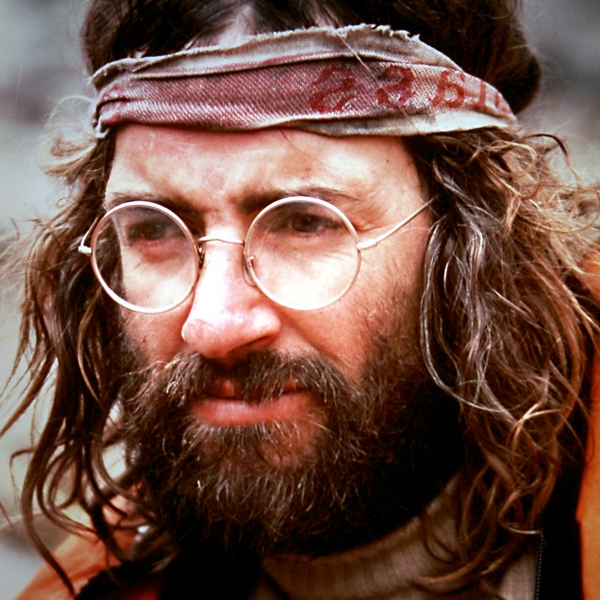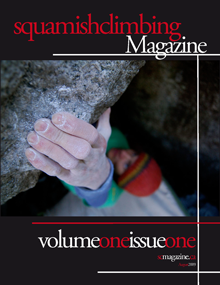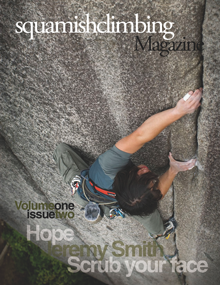This Friday, Oct. 19th, 2018 at the Vancouver International Mountain Film Festival, Legendary mountaineer Doug Scott will share his climbing life and his pursuit of the giants, from the Himalayas and the Karakoram to right her in the Pacific North West. Doug is also the founder of Community Action Nepal, an organization dedicated to helping the mountain people of Nepal.
We had a chance to catch up with Doug, as he travelled along the Atlantic to Vancouver. Here is what he had to say.
First off, thanks again for your time to chat with us. We are very excited about your presentation this year at the Vancouver International Mountain Film Festival. Can you tell us a bit about your presentation and the draw to come all the way to Canada to share your stories?
The lecture is all about a lifetime of climbing from the age of 13 onward.
After sharing your mountaineering escapades for numerous years, has the audience changed over time and does the current generation of alpinists inspired by your adventures live up to the previous generation?
The audience remains much the same and, although climbers are better equipped today, they still push the boundaries so the limits are the same as always.
You are the founder of Community Action Nepal and continue to dedicate yourself to the organization. For our readers, can you tell us a bit about the mandate of CAN and how it has impacted your life and you dedication to the Nepalese people?
When CAN was first founded, we ticked along with a few projects supporting local communities when requested to do so. Then demand exploded with the advent of the Maoists and, just as things were settling back down, the earthquakes in 2015 meant that the past three years have been incredibly full on. Since then, 5,000 CAN donors have helped to raised £3 million supported by a team of 100 volunteers, dedicated staff and Trustees many of whom worked beyond the call of duty because they all believe in the wonderful mountain people of Nepal.
What are you thoughts on present day Everest and the events that have transpired over the past number of years?
The development of the two original routes up Everest was inevitable – rather like what happened in the Alps on the Matterhorn and Mont Blanc. However, the problem with high altitude tourism is the impact on the environment. This is much greater in Nepal than the Alps and therefore special measures have to be taken to alleviate the situation.
You are known as one of the pioneers of alpine style mountaineering in the Himalayas. There was a period of frequent fatalities amongst mountaineers experimenting with that style in the 1980s. Do you have any thoughts on what kept you alive during that period, or what others were getting wrong?
There is no doubt that for people like Chris Bonington, Paul ‘Tut’ Braithwaite and many others, who survived the golden age of Alpine climbing, that when we look back there is great sadness that so many friends didn’t survive. A lot of it was down to luck and perhaps not being overwhelmingly ambitious.
No stranger to the Pacific Northwest, you came to British Columbia to climb Mt Waddington in 1978. How did you reach Waddington? It is known even now as a committing location to visit. How did it seem then and how did it compare as an objective to the Himalayas (other than lower altitude)?
Mt. Waddington was the perfect expedition. It had all the ingredients that can be found in going from the ocean to the sky, the great cedar trees of the Homathko valley, two days skiing up the Tiedemann glacier and then a challenging climb in early Spring conditions. Most of all the climb was done in excellent company.
Did you ever have the chance to visit Squamish during the time or have you ever been back since?
Yes I have visited Squamish which has, in my opinion, some of the best crack climbing in the world. Better even than Yosemite since the rock of Squamish is less slick.
You have been critical of the British Mountaineering Council (BMC) in recent years. Is it possible to describe the essence of your concerns for a Canadian audience? In its current form, Canada has no national climbers’ access group or umbrella organization. Do you think we may be better off for that?
The problem with the BMC is that, like most organizations, it started for purely altruistic reasons as a means of representing climbers and that has changed over time to an organization trying to govern climbers. It’s founding principles were never to proselytize for ever more climbers and hill walkers and never to take vast quantities of government money to the extent that. If funds were withdrawn, the core activities couldn’t continue. The founding principles have been lost and changed and the BMC now governs rather than represents. If that’s what Canadian climbers want then set up a national body like the BMC but realize government funding always comes with its pound of flesh.
I understand that you are still climbing frequently. Do you have any tips on staying active at your age and what is the most difficult thing about aging?
Best tip is to keep climbing – never stop although the most difficult thing to recognise about aging is to recognise aging itself.
Finally, you have travelled very extensively to climb. Is there anywhere left in your ‘bucket list’?
None that I can now reach!
Thanks again for your time Doug and looking forward to your presentation Friday night.
Doug Scott will be speaking at Centennial Theatre in North Vancouver on Friday Oct. 19th, 2018. Get your tickets here!













